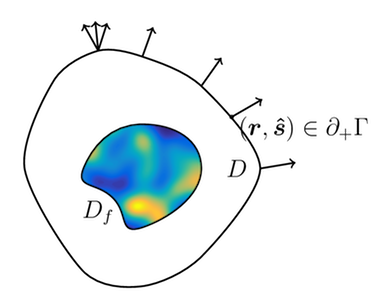Research
I am a mathematician and computational scientist working to understand how noisy imaging data can be used to rigorously make decisions in medicine. My research involves several mathematical topics, including image science and statistical inverse problems, uncertainty quantification, theoretical and computational statistical decision theory, mathematical modeling of physical and biological systems, and Monte Carlo methods. The project that I’m currently most excited about concerns the mathematical, statistical and computational issues that arise when noisy molecular imaging data is used to help predict treatment outcomes in personalized cancer therapy. Abstractly, the major theme that drives my research program is making predictions in complex, dynamic, multi-scale systems when only imprecise and indirect data about the system is known.
To read more about specific projects, see below!
Projects
- Quantifying uncertainties in predictive medicine
- Image science with particle processing detectors
- High performance parallel numerical simulation of imaging systems
- Task-based assessment of image quality
- Sparsity based methods in image science
Quantifying uncertainties in predictive medicine
One of the major scientific goals of the 21st century is to make medicine personalized and predictive. A major role will be played by mathematical models of diseases and treatments, which can provide personalized predictions when coupled with patient-specific measurements such as imaging data and genomics. The goal of this project is to use mathematical and numerical simulation techniques to understand uncertainties that arise when emission imaging data is used in predictive models of treatment efficacy.
Read moreImage science with particle processing detectors
In recent years, emission imaging systems have begun to incorporate a new detector design based on on-the-fly event attribute estimation. These new detectors - called particle processing detectors - lead to interesting new mathematical models for imaging systems. The goal is to quantify the performance of such detectors using the theory of inverse problems and statistical decision theory.
